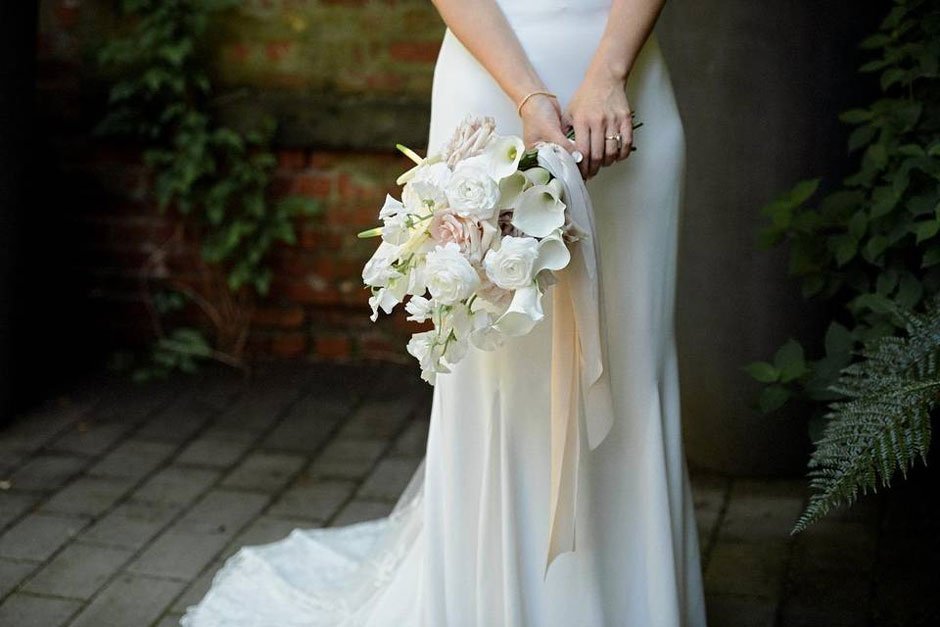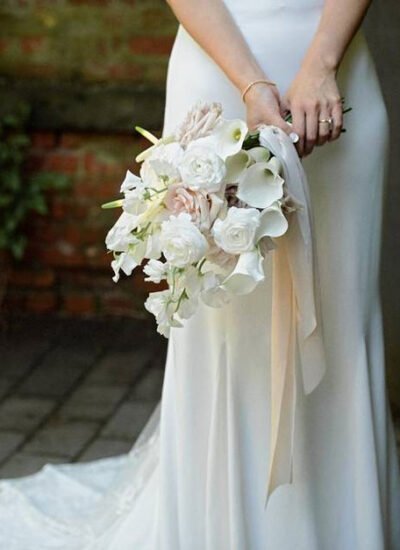 Planning a wedding is one of the biggest events in life. It can feel exciting, but it can also feel overwhelming if you do not have a clear plan.
Planning a wedding is one of the biggest events in life. It can feel exciting, but it can also feel overwhelming if you do not have a clear plan.
There are so many details to think about—venue, food, clothes, guests, and more. The key is to start with the most important steps first.
When you organize the basics early, everything else becomes easier. It also helps you stay within your budget and avoid last-minute stress.
This checklist will guide you through the first things you should do when planning your wedding. It is simple and practical so you can feel confident as you begin.
1. Decide on Your Budget
Your budget will guide every decision, so it needs to be the first thing you figure out. Start by asking yourself what you can afford without creating financial problems. Include any contributions from family and friends.
Once you know the total amount, break it down into categories. A big part of the budget will go to the venue, food, and drinks. Other parts will cover outfits, photography, flowers, and decorations.
Do not forget smaller costs like invitations, transportation, and tips for vendors. A detailed budget helps you avoid overspending and gives you peace of mind.
2. Create a Guest List
The size of your guest list will affect your budget and your venue options. Start with a rough list of the people you want to invite. Begin with close family and friends, then add others you would like to include.
Be realistic. If you want a small, intimate wedding, you will need to limit your list. If you prefer a large celebration, remember that more guests mean higher costs for food, drinks, and seating. Having a guest list early helps you make other decisions faster.
3. Pick a Date
Choosing your wedding date is an important step because it sets the schedule for everything else. Start by considering what season you prefer. Spring and summer weddings are popular, but they can also be more expensive. Fall and winter might give you more options and better prices.
Check the calendars of close family members to avoid conflicts. Think about holidays, work schedules, and travel plans. Once you pick a date, you can move forward with booking vendors and sending out notices.
4. Book the Venue
Venues often book up months or even a year in advance, so this is a top priority. Look for places that match your budget, guest list, and style.
Do you want an indoor space, an outdoor garden, or a banquet hall? Make a list of what is important to you, like parking, accessibility, and available services.
Visit a few locations in person to see how they feel. Ask about what is included in the rental price. Some venues offer tables, chairs, and decorations, while others do not. Booking early ensures you get the place you really want.
5. Explore Loans for Wedding
Some couples find that their savings are not enough to cover all the costs. If you need extra money, consider options for loans for wedding expenses.
These loans can help you pay for big-ticket items like the venue, catering, or photography. Before you apply, compare interest rates, terms, and fees from different lenders. Make sure you understand the repayment plan and only borrow what you can realistically afford to pay back.
Taking a loan should not add stress after the wedding, so plan carefully and read all the details before signing.
6. Choose Your Theme and Style
Your theme sets the tone for your wedding and ties everything together. Think about the atmosphere you want.
Do you prefer something elegant and formal, or casual and fun? Decide on colors, decorations, and design elements that match your style.
Your theme will guide choices for flowers, invitations, and even clothing. It does not have to be complicated. A few simple ideas can make your wedding feel personal and unique.
7. Book Key Vendors
Photographers, caterers, and music providers often book up quickly, especially in busy wedding seasons.
Start reaching out as soon as your date and venue are confirmed. Ask for samples of their work or attend a tasting if possible.
Read reviews and check what is included in their packages. Some vendors offer extra services, like photo albums or additional staff, for an extra cost.
Confirm everything in writing so there are no surprises later. Booking vendors early gives you peace of mind and ensures you get the people you want.
8. Plan Your Outfits
Your outfit is one of the most personal parts of your wedding. Start shopping early so you have time for fittings and alterations.
Think about your comfort as well as your style. The weather and location can affect what you wear, so keep that in mind.
Do not forget shoes, jewelry, and other accessories. If your wedding party will wear coordinated outfits, plan those too. If you are renting, check availability and book ahead. This will prevent stress as the big day approaches.
9. Send Save-the-Dates
Once you have a date and venue, let your guests know. Sending a save-the-date early gives people time to plan, especially if they need to travel. You can send a card or an email, whichever fits your style and budget.
Include basic information like the date, city, and a note that a formal invitation will follow. This small step helps ensure that the people most important to you can be there.
10. Set Up a Timeline
Planning a wedding involves many tasks, so having a timeline is essential. Write down what needs to be done each month leading up to the big day.
Include deadlines for booking vendors, sending invitations, and paying deposits. A timeline keeps you organized and reduces stress. It also helps you spot any issues before they become problems.
Keeping track of everything in one place makes the planning process much smoother.
Final Thoughts
Planning a wedding takes time and effort, but starting with these key steps will make everything easier.
Begin with a clear budget, a guest list, and a date. Book your venue early, secure your vendors, and stay organized with a timeline. If you need financial help, research your options carefully.
With good planning, you can enjoy the process and look forward to a beautiful, stress-free celebration.





Leave a Reply